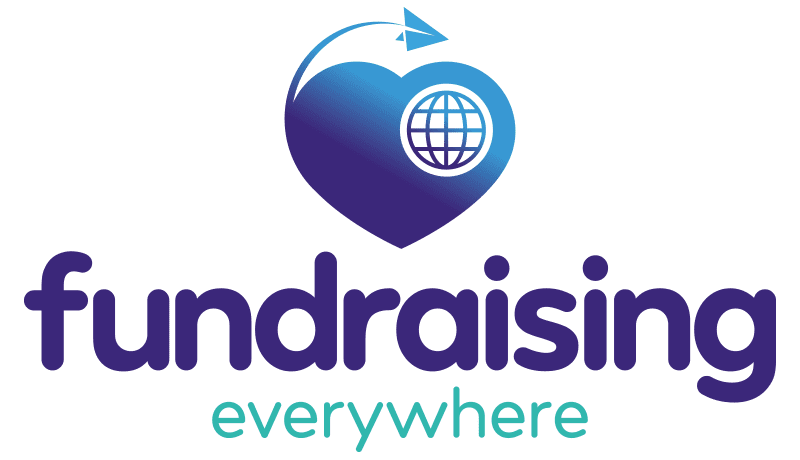
Guest blogger Caroline Danks of LarkOwl lifts the lid on cross-disciplinary learnings that can take corporate fundraising to the next level.
There are so many traits shared by fundraising across the board.
On the whole (barring a few notable exception who shall not be named) we are resilient, creative, warm, hard-working, committed, motivated and socially conscious.
I’ve observed over nearly 20 years in the sector that there are definitely some traits which are typical to one type of fundraiser over another.
Now, I don’t speak on behalf of ALL trust fundraisers and I certainly don’t want to make assumptions or generalisations about my friends in corporate fundraising (or have them throw rotten tomatoes at me anytime soon…).
And whilst I reckon that corporate fundraisers are AWESOME (you guys have a HARD job and my utmost respect), here are some suggestions for those of you who want to inject a little trust fundraiser magic into their work (if you’re not already doing these of course 😊).
1. Research and prepare
We trust fundraisers LOVE research. Not just the obvious stuff in a funders’ accounts but also the wonderfully random information available widely on the interweb (Google – I’m looking at you).
Corporates require a more sophisticated ask than trusts. You have a veritable spider web of options for reaching out and getting to know them better. Much more so than the typical route taken by a trust fundraiser (research, phone, write application, get funding).
Next time you’re looking at a new supporter, go deeper than you normally would into your research and spend some time mapping out:
- Company activities, geographic location, history, competitors
- Find their why – what is the problem they’re trying to solve?
- Who are their directors, shareholders, senior staff members? Are they connected to anyone from your charity?
- Who are the decision makers at the company? What are their interests? Which networking events do they go to? Have they written articles on LinkedIn? What are their opinions?
- Do they work in partnership with anyone else?
All of this information will help you to form better partnership proposals and have better conversations.
2. Outputs, outcomes, impact and speaking their language
Gifts from trusts often require more in-depth monitoring and reporting than those from corporates.
Because so many trust fundraisers also have experience in grant fundraising, they are often really good at articulating and quantifying the difference a gift has made.
During a Bright Spot Members Club webinar I attended a while back, Tom Hall from UBS informed us that major donors (especially those who are self-made) expect their gifts to act as investments with measurable benefits.
Leaders at the top of successful companies (and therefore the people that you’re seeking to work with) want this too because they are often the same people.
To better quantify the impact of your work:
- Spend some time with your project staff and finance teams.
- Work out how the benefits and impact of a gift have translated in financial terms.
- Seek to demonstrate that the return on investment you’re delivering is the best value it can possible be.
- Articulate it simply and clearly – get a colleague (a trusts and foundations colleague mayve?) to check your work.
3. Focus not on the activities but on the outcomes and the cost of delivering the work.
Rather than showing your prospective corporate supporter how they can ‘donate to a charity’, demonstrate how they can ‘solve a problem’ or ‘change the world’.
Be clear also on sustainability (loads of trusts are now asking this question).
No one really wants to fund projects in perpetuity and charities are being encouraged more and more to seek forms on income generation to support their ongoing work.
4. Be specific and a bit geeky when it comes to target setting
Because grant making trusts often provide quite a predictable stream of income and one on which many charities tend to lean heavily, trust fundraisers are often quite specific about target setting.
The potential for repeat gifts from trusts is also high when you deliver on their expectations (same with corporates – think long term here!)
Know from your research and your conversations with your colleagues at each company you’re working with:
- What their typical giving is. Is their COY partnership a set amount each year for example?
- What has their charitable giving achieved in the past? They might not know – get them to find out…
- What have similar relationships with other corporates yielded for your charity in the past?
- How warm are each of your relationships? How close are you to making an ask and how long will it take for the cash to materialise (this depends on the method you’re using to fundraise)
- ROI for corporate fundraising is low at the start but grows over time, £3 / £4 for every £1 spent is a good guide
Caroline is an expert in trusts and foundations, major gifts and capital appeals and has raised millions for good causes and runs LarkOwl with her partner Tony which supports charities with income generation from fundraising and commercial sources.
She writes a weekly blog which she shares with over 2,000 fundraisers every week via LarkOwl’s Nest Egg newsletter. Her writing has been featured in Fundraising Magazine.
For the past three years, LarkOwl have published research on the Return on Investment for different areas of fundraising. Their recent report published in September 2021 can be downloaded for free from their website.
Want to learn more about trusts or corporate fundraising?
Join us at our Grants Conference in December.
Check out Corporate Partnerships Everywhere Conference 2023 coming up in March, too.






